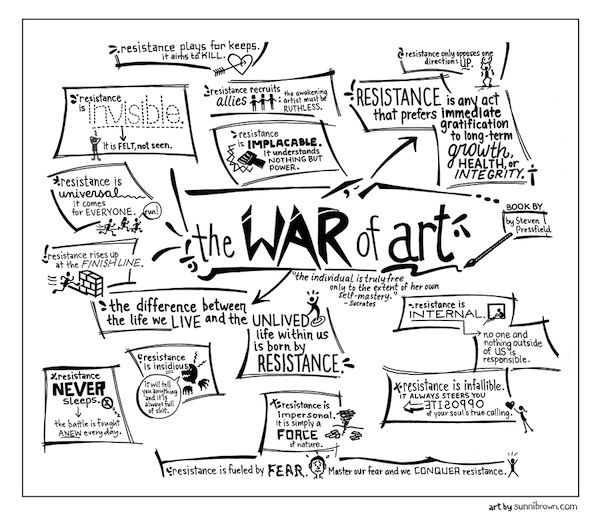
Steven Pressfield
He was born in Port of Spain, Trinidad, in 1943, while his father was stationed there, in the Navy. He graduated from Duke University in 1965 and in 1966 joined the Marine Corps. In the years following, he worked as an advertising copywriter, schoolteacher, tractor-trailer driver, bartender, oilfield roustabout, attendant in a mental hospital, fruit-picker in Washington state, and screenwriter. His struggles to make a living as an author, including the period when he was homeless and living out of the back of his car, are detailed in his book The War of Art.
What is an unusual habit or an absurd thing that you love?
This’ll sound crazy, but I have certain places that I go to, usually alone, that summon up for me earlier eras in my life. Time is a weird thing. Sometimes you can appreciate a moment that’s gone more in the present than you did when it was actually happening. The places that I go to are different all the time and they’re usually mundane, ridiculously mundane. A gas station. A bench on a street. Sometimes I’ll fly across the country just to go to one of these spots. Sometimes it’s on a vacation or a business trip when I’m with family or other people. I might not ever tell them. Or I might. Sometimes I’ll take somebody along, though it usually doesn’t work (how could it?).
What advice would you give to a smart, driven college student about to enter the “real world”? What advice should they ignore?
I’m probably hopelessly out of date but my advice is get real-world experience: Be a cowboy. Drive a truck. Join the Marine Corps. Get out of the hypercompetitive “life hack” frame of mind. I’m 74. Believe me, you’ve got all the time in the world. You’ve got ten lifetimes ahead of you. Don’t worry about your friends “beating” you or “getting somewhere” ahead of you. Get out into the real dirt world and start failing. Why do I say that? Because the goal is to connect with your own self, your own soul. Adversity. Everybody spends their life trying to avoid it. Me too. But the best things that ever happened to me came during the times when the shit hit the fan and I had nothing and nobody to help me. Who are you really? What do you really want? Get out there and fail and find out.
What is the book (or books) you’ve given most as a gift, and why? Or what are one to three books that have greatly influenced your life?
The single book that has influenced me most is probably the last book in the world that anybody is gonna want to read: Thucydides’ History of the Peloponnesian War. This book is dense, difficult, long, full of blood and guts. It wasn’t written, as Thucydides himself attests at the start, to be easy or fun. But it is loaded with hardcore, timeless truths and the story it tells ought to be required reading for every citizen in a democracy.
Thucydides was an Athenian general who was beaten and disgraced in a battle early in the 27-year conflagration that came to be called the Peloponnesian War. He decided to drop out of the fighting and dedicate himself to recording, in all the detail he could manage, this conflict, which, he felt certain, would turn out to be the greatest and most significant war ever fought up to that time. He did just that.
Have you heard of Pericles’ Funeral Oration? Thucydides was there for it. He transcribed it.
He was there for the debates in the Athenian assembly over the treatment of the island of Melos, the famous Melian Dialogue. If he wasn’t there for the defeat of the Athenian fleet at Syracuse or the betrayal of Athens by Alcibiades, he knew people who were there and he went to extremes to record what they told him. Thucydides, like all the Greeks of his era, was unencumbered by Christian theology, or Marxist dogma, or Freudian psychology, or any of the other “isms” that attempt to convince us that man is basically good, or perhaps perfectible. He saw things as they were, in my opinion. It’s a dark vision but tremendously bracing and empowering because it’s true. On the island of Corcyra, a great naval power in its day, one faction of citizens trapped their neighbors and fellow Corcyreans in a temple. They slaughtered the prisoners’ children outside before their eyes and when the captives gave themselves up based on pledges of clemency and oaths sworn before the gods, the captors massacred them as well. This was not a war of nation versus nation, this was brother against brother in the most civilized cities on earth. To read Thucydides is to see our own world in microcosm. It’s the study of how democracies destroy themselves by breaking down into warring factions, the Few versus the Many. Hoi polloi in Greek means “the many.” Oligoi means “the few.”
I can’t recommend Thucydides for fun, but if you want to expose yourself to a towering intellect writing on the deepest stuff imaginable, give it a try.
How has a failure, or apparent failure, set you up for later success? Do you have a “favorite failure” of yours?
I just wrote a book called The Knowledge about my favorite failure and guess what? It failed too. In all truth, when my third novel (which, like the first two, never got published) crashed ignominiously, I was driving a cab in New York City. I’d been trying to get published for about 15 years at that point. I decided to give up and move to Hollywood, to see if I could find work writing for the movies. Don’t ask me what movies I wrote. I will never tell. And if you find out by other means, BE WARNED! Don’t see ’em. But working in “the industry” made me a pro and paved the way for whatever successes finally did come.
If you could have a gigantic billboard anywhere with anything on it, what would it say and why?
I would not have a billboard, and I would take down every billboard that everybody else has put up.
What is one of the best or most worthwhile investments you’ve ever made?
I’ve never invested in the stock market or taken a risk on anything outside myself. I decided a long time ago that I would only bet on myself. I will risk two years on a book that’ll probably fall flat on its face. I don’t mind. I tried. It didn’t work. I believe in investing in your heart. That’s all I do, really. I’m a servant of the Muse. All my money is on her.
In the last five years, what new belief, behavior, or habit has most improved your life?
I’ve always been a gym person and an early morning person. But a few years ago I got invited to train with T. R. Goodman at a place called Pro Camp. There’s a “system,” yeah, but basically what we do (and it’s definitely a group thing, with three or four of us training together) is just work hard. I hate it but it’s great. T. R. says, as we’re leaving after working out, “Nothing you face today will be harder than what you just did.”
In the last five years, what have you become better at saying no to? What new realizations and/or approaches helped?
I got a chance a couple of years ago to visit a security firm, one of those places that guard celebrities and protect their privacy — in other words, a business whose total job was to say no. The person who was giving me the tour told me that the business screens every incoming letter, solicitation, email, etc., and decides which ones get through to the client. “How many get through?” I asked.
“Virtually none,” my friend said. I decided that I would look at incoming mail the same way that firm does. If I were the security professional tasked with protecting me from bogus, sociopathic, and clueless asks, which ones would I screen and dump into the trash? That has helped a lot.
When you feel overwhelmed or unfocused, what do you do?
I have a friend at the gym who knew Jack LaLanne (Google him if the name is unfamiliar). Jack used to say it’s okay to take a day off from working out. But on that day, you’re not allowed to eat. That’s the short way of saying you’re not really allowed to get unfocused. Take a vacation. Gather yourself. But know that the only reason you’re here on this planet is to follow your star and do what the Muse tells you. It’s amazing how a good day’s work will get you right back to feeling like yourself.
What are bad recommendations you hear in your profession or area of expertise?
Great, great question. In the world of writing, everyone wants to succeed immediatelyand without pain or effort. Really? Or they love to write books about how to write books, rather than actually writing . . . a book that might actually be about something. Bad advice is everywhere. Build a following. Establish a platform. Learn how to scam the system. In other words, do all the surface stuff and none of the real work it takes to actually produce something of value. The disease of our times is that we live on the surface. We’re like the Platte River, a mile wide and an inch deep. I always say, “If you want to become a billionaire, invent something that will allow people to indulge their own Resistance.” Somebody did invent it. It’s called the Internet. Social media. That wonderland where we can flit from one superficial, jerkoff distraction to another, always remaining on the surface, never going deeper than an inch. Real work and real satisfaction come from the opposite of what the web provides. They come from going deep into something — the book you’re writing, the album, the movie — and staying there for a long, long time.
Check Out Steven Pressfield by Clicking Here
Some great quotes from Steven Pressfield:
“Resistance is directly proportional to love. If you’re feeling massive Resistance, the good news is that it means there’s tremendous love there too.”
“I’m keenly aware of the Principle of Priority, which states (a) you must know the difference between what is urgent and what is important, and (b) you must do what’s important first.”
“Whatever you can do, or dream you can, begin it. Boldness has genius, magic, and power in it. Begin it now.” — W. H. Murray,”
“The counterfeit innovator is wildly self-confident. The real one is scared to death.”
“The paradox seems to be, as Socrates demonstrated long ago, that the truly free individual is free only to the extent of his own self-mastery. While those who will not govern themselves are condemned to find masters to govern over them.”
“Resistance obstructs movement only from a lower sphere to a higher. It kicks in when we seek to pursue a calling in the arts, launch an innovative enterprise, or evolve to a high station morally, ethically, or spiritually.”
“The professional cannot take rejection personally because to do so reinforces Resistance. Editors are not the enemy; critics are not the enemy. Resistance is the enemy. The battle is inside our own heads. We cannot let external criticism, even if it’s true, fortify our internal foe. That foe is strong enough already.”
LINK TO THE ORIGINAL ARTICLE ON TIM.BLOG


